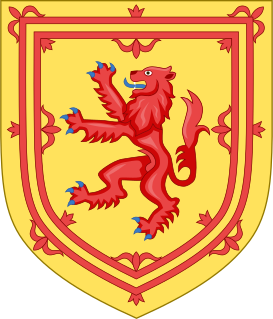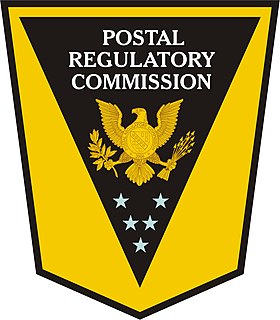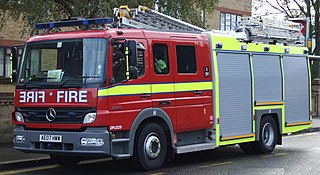External links
- Lacors.gov.uk - Local Government Regulation
- Local.gov.uk - LGA, LGID and related bodies
| | This article related to government in the United Kingdom or its constituent countries is a stub. You can help Wikipedia by expanding it. |
Local Government Regulation is one of the six bodies that form the Local Government Group overseen by the Local Government Association (LGA). It provides advice and guidance to a number of regulatory services in the United Kingdom. The organisation provides guidance notes at its website and appoints some Local Authority experts as 'Lead Officers', contacts who will advise other officers.
It was originally established in 1978 as Local Authorities Coordination of Trading Standards (LACOTS), supporting and attempting to ensure uniform enforcement by the Local Authority-based Trading Standards departments. Since 1991 it has also expanded to cover food safety, gambling, civil registration and a number of other enforcement functions and known as Local Authorities Coordinators of Regulatory Services (LACORS). It was renamed to its current title in July 2010 along with other members of the Local Government Group as part of the latter's 'Getting Closer' initiative.
It is funded by a mix of money 'top-sliced' from local authorities' Revenue Support Grant (RSG) payments from the UK government, grant funding from devolved governments in the UK, and fee income from chargeable services.
| | This article related to government in the United Kingdom or its constituent countries is a stub. You can help Wikipedia by expanding it. |

The Regulation of Investigatory Powers Act 2000 (c.23) is an Act of the Parliament of the United Kingdom, regulating the powers of public bodies to carry out surveillance and investigation, and covering the interception of communications. It was introduced by the Tony Blair Labour government ostensibly to take account of technological change such as the growth of the Internet and strong encryption.
Independent agencies of the United States federal government are agencies that exist outside the federal executive departments and the Executive Office of the President. In a narrower sense, the term refers only to those independent agencies that, while considered part of the executive branch, have regulatory or rulemaking authority and are insulated from presidential control, usually because the president's power to dismiss the agency head or a member is limited.

The Financial Services Authority (FSA) was a quasi-judicial body responsible for the regulation of the financial services industry in the United Kingdom between 2001 and 2013. It was founded as the Securities and Investments Board (SIB) in 1985. Its board was appointed by the Treasury, although it operated independently of government. It was structured as a company limited by guarantee and was funded entirely by fees charged to the financial services industry.

The pattern of local government in England is complex, with the distribution of functions varying according to the local arrangements.

The Medicines and Healthcare products Regulatory Agency (MHRA) is an executive agency of the Department of Health and Social Care in the United Kingdom which is responsible for ensuring that medicines and medical devices work and are acceptably safe.
In general, compliance means conforming to a rule, such as a specification, policy, standard or law. Regulatory compliance describes the goal that organizations aspire to achieve in their efforts to ensure that they are aware of and take steps to comply with relevant laws, policies, and regulations. Due to the increasing number of regulations and need for operational transparency, organizations are increasingly adopting the use of consolidated and harmonized sets of compliance controls. This approach is used to ensure that all necessary governance requirements can be met without the unnecessary duplication of effort and activity from resources.

The Chartered Trading Standards Institute (CTSI) is a professional association which represents and trains trading standards professionals working in local authorities, business and consumer sectors and in central government in the UK and overseas.
In the United Kingdom, Trading Standards are the local authority departments, formerly known as Weights and Measures, that enforce consumer protection legislation.
The Improvement and Development Agency for local government is a legal entity within the Local Government Association responsible for providing improvement support to local authorities in England.
A financial adviser or financial advisor is a professional who provides financial services to clients based on their financial situation. In many countries, financial advisors must complete specific training and be registered with a regulatory body in order to provide advice.

The Convention of Scottish Local Authorities (COSLA) is the national association of Scottish councils and acts as an employers' association for its 32 member authorities.

The Local Government Association (LGA) is the national membership body for local authorities. Its core membership is made up of 339 English councils and the 22 Welsh councils through the Welsh Local Government Association.

The United States Postal Regulatory Commission, formerly called the Postal Rate Commission, is an independent regulatory agency created by the Postal Reorganization Act of 1970. Like the Postal Service, it was defined in law as an independent establishment of the executive branch.
Overview and Scrutiny is a function of local authorities in England and Wales. It was introduced by the Local Government Act 2000 which created separate Executive and Overview and Scrutiny functions within councils.

The fire services in the United Kingdom operate under separate legislative and administrative arrangements in England and Wales, Northern Ireland, and Scotland.
In England and Wales a fire authority or fire and rescue authority is a statutory body made up of a committee of local councillors which oversees the policy and service delivery of a fire and rescue service. Prior to the Fire Services Act 2004 many fire and rescue authorities were known as fire and civil defence authorities; this designation is no longer used.
Local Government Leadership is one of the six bodies that form the Local Government Group in England and Wales overseen by the Local Government Association (LGA). Its purpose is to develop leadership skills among both local authority (elected) members and (unelected) officials. It has played a leading role in recent high-profile policy initiatives including 'Total Place' and 'Community Budgets'.
Consumer protection in the United Kingdom is effected through a multiplicity of Acts of Parliament, statutory instruments, government agencies and departments and citizens' lobby groups and aims to ensure the market economy produces fairness and quality in goods and services people buy. The main areas of regulating consumer affairs include,
The Tertiary Education Quality and Standards Agency (TEQSA) is Australia's independent national quality assurance and regulatory agency for higher education.